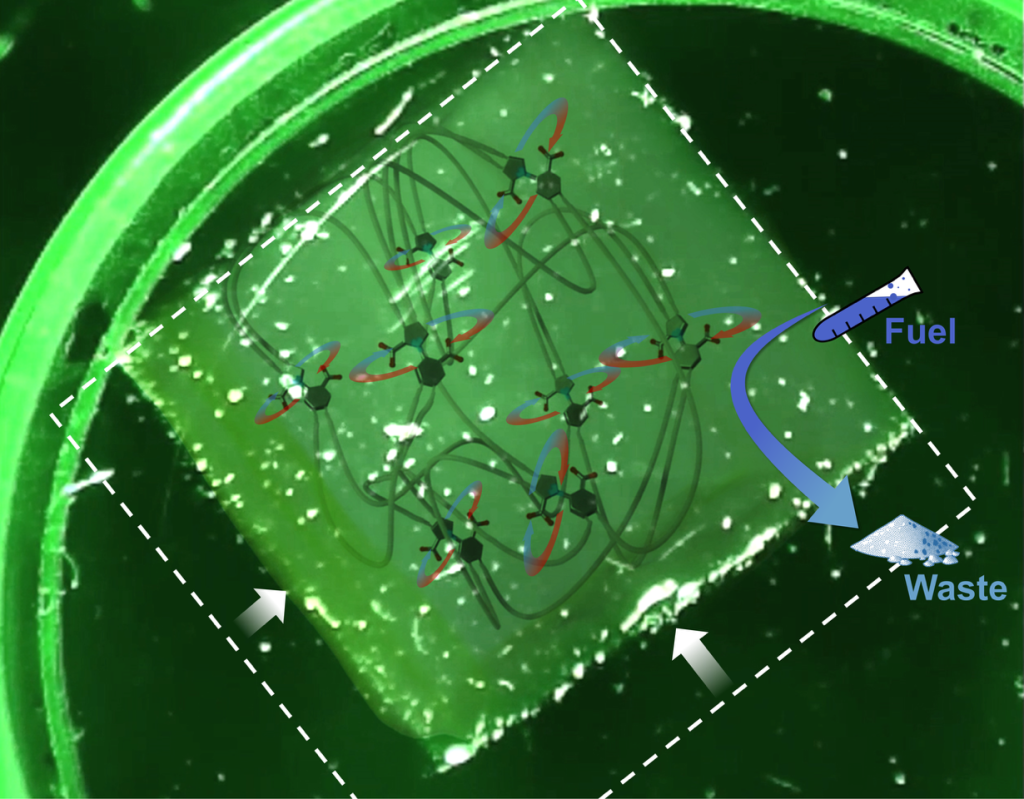Scientists have built an artificial motor that mimics the natural mechanisms that power life.
Just like the proteins in our muscles, which convert chemical energy into power to allow us to perform daily tasks, these tiny rotary motors use chemical energy to generate force, store energy, and perform tasks in a similar way.
The finding, from The University of Manchester and the University of Strasbourg, published in the journal Nature, provides new insights into the fundamental processes that drive life at the molecular level and could op
The artificial rotary motors are incredibly tiny—much smaller than a strand of human hair. They are embedded into polymer chains of a synthetic gel and when fuelled, they work like miniature car engines, converting the fuel into waste products, while using the energy to rotate the motor.
The rotation twists the gel’s molecular chains, causing the gel to shrink, storing the energy, much like winding like an elastic band. The stored energy can then be released to perform tasks.
So far, the scientists have demonstrated the motor’s ability to open and close micron-sized holes and speed up chemical reactions.
Professor Leigh added: “Mimicking the chemical energy-powered systems found in nature not only helps our understanding of life but could open the door to revolutionary advances in medicine, energy and nanotechnology.”
Source: University of Manchester
You can offer your link to a page which is relevant to the topic of this post.






